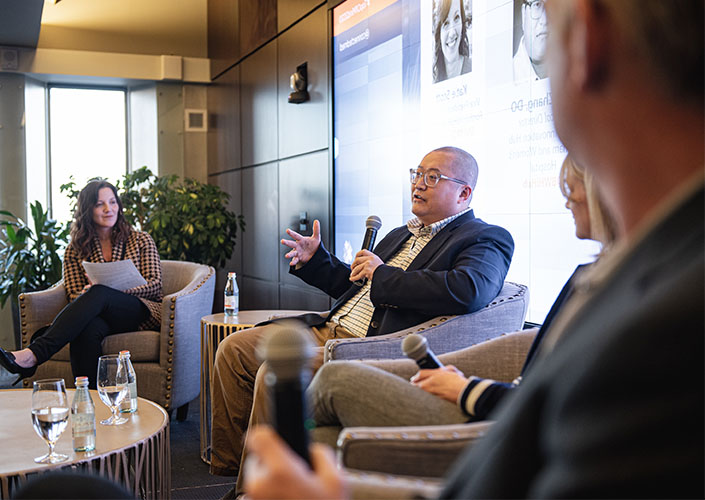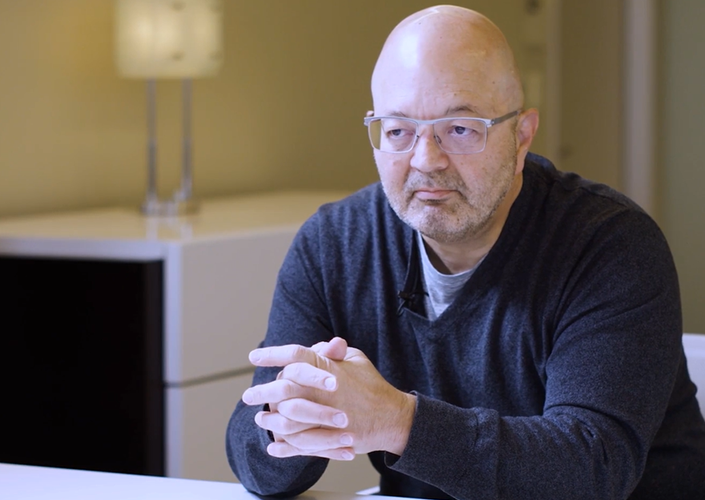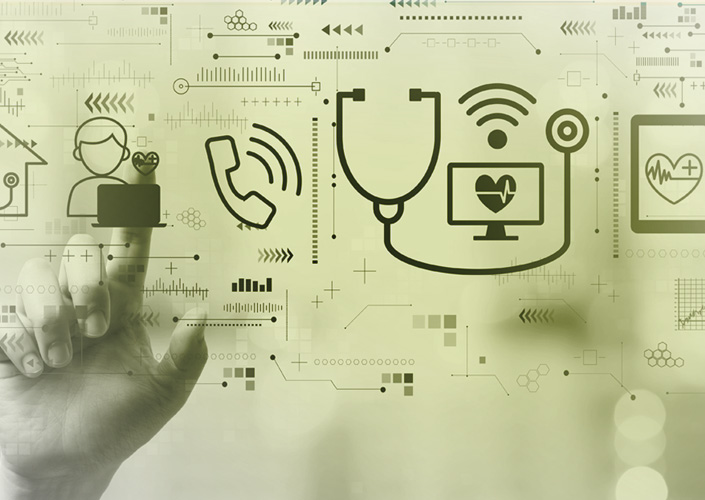Medical Director at Brigham Digital Innovation Hub describes implementation of navigation solution at Brigham and Women’s Hospital
In the drive to attract and retain patients, health systems and hospitals are increasingly focused on the patient experience.
While traditionally behind the curve when it comes to digital solutions aimed at making the care experience more convenient, health providers are latching onto a number of digital tools specifically for patients.
One of those is digital wayfinding – often a mobile app that helps patients and visitors find their way around complex medical facilities for care appointments or to visit loved ones.
Mark Zhang, DO, the Medical Director of the Brigham Digital Innovation Hub, talked about a wayfinding solution implemented at Brigham and Women’s Hospital. Dr. Zhang was interviewed by the Center for Connected Medicine (CCM) at the Top of Mind Summit in December 2019.
Using wayfinding to improve the patient experience at Brigham and Women’s Hospital
Brigham and Women’s Hospital in Boston implemented a digital wayfinding solution to give its patients a better experience when they visit the hospital. That’s especially true for patients who are sick and would be caused additional stress by navigation difficulties.
But the project wasn’t without its challenges. Dr. Zhang noted that the team at the Brigham Digital Innovation Hub not only needed to find a solution that would give patients the experience they wanted but it also had to work.
“That was a huge learning process for our team to be able to implement,” Dr. Zhang said. “And now what we’ve seen is tremendous support from leadership and staff for the solution. So now it’s about driving utilization and adoption of the tool.”
With the wayfinding app up and running, Brigham is expanding the use of the solution to work with other digital tools, such as text alerts for upcoming care appointments that include directions to the site of care.
“By enabling alerts when you have a preplanned procedure and adding that wayfinding component, that increases the patient experience and that’s part and parcel of enabling this larger digital strategy that we have,” Dr. Zhang said.
Wayfinding was the most cited digital tool being investigated for future use at health systems, according to the CCM’s report, The Future of the Digital Patient Experience. And Emily Webber, MD, Chief Medical Information Officer at Riley Children’s Health, discussed the importance of apps, including wayfinding, in the digital patient experience during an interview with the CCM.
“That was a huge learning process for our team to be able to implement,” Dr. Zhang said. “And now what we’ve seen is tremendous support from leadership and staff for the solution. So now it’s about driving utilization and adoption of the tool.”
Wayfinding apps implemented at health systems focused on patient experience
Many health systems are exploring wayfinding apps as a way to give patients a better experience when they visit care facilities.
Mercy Health in Cincinnati introduced an in-hospital wayfinding app for Apple and Android devices, making it easier for visitors to find everything from their physician to their parking spot, according to mHealth Intelligence.
But the apps have benefits beyond the patient experience by also helping to reduce missed or late appointments, the story explains.
Boston Children’s Hospital rolled out a navigation system for its 12-building health care campus. The MyWay app, implemented in 2012, has improved the patient experience, according to Health Tech Magazine.
And while wayfinding apps are primarily implemented to help patients, Becker’s Hospital Review reports that they’re also used to aid navigation for employees. Citing a Wall Street Journal story, Becker’s states that hospitals are using the wayfinding solutions, which are enabled by radio transmitters and Bluetooth signals, help their staff navigate complex campuses and even locate wheelchairs, gurneys, IV pumps and other supplies.
About Mark Zhang, DO
In addition to serving as Medical Director of the Brigham Digital Innovation Hub, Dr. Zhang holds the position of Associate Program Director of the Clinical Informatics and Innovation Fellowship at Partners Healthcare and is a Palliative Care consultant at Dana Farber Cancer Institute, according to his Brigham Digital Innovation Hub bio.
Dr. Zhang is a graduate of the Harvard Interprofessional Palliative Care Fellowship, the first graduate of the Clinical Informatics and Innovation fellowship at Partners Healthcare, and completed a Masters in Medical Science in Biomedical Informatics at Harvard Medical School.
He also is the founder and co-creator of Palliative Care Fast Facts for iOS and Android mobile apps and is the co-founder of Cake, a venture backed company focused on advance care planning.
More on digital health tools from the CCM
Watch our webinar on-demand and hear from health system and technology leaders about how providers are leveraging digital tools as in-person services expand.
Learn about how CCM partner UPMC ramped up telemedicine to address patient care during the pandemic.
And find out from a UPMC executive why health systems must prioritize the digital patient experience.



